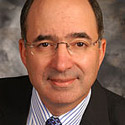04:09 PM
The Flyswatter and the Neutron Bomb: Redefining Mutual Fund Governance
So what will they do? They will keep an eye on things, ask questions, stop things from going drastically wrong and oversee the fund. The problem is, can this be done with little knowledge of the inside? Can it be done without knowing how funds work, the business of managing funds and the efficiencies built into the process? I am not sure. I certainly would need some convincing.
Even if they find a problem, what will be their remedy? Can they really change the fund without a drastic change, such as changing the portfolio manager or the custodian?
The way I see it, the board will have little impact on the day-to-day running of the fund, because so much of fund servicing is performed collectively. If they do not like the trading process, will they be able to change it? Changing the trading process, or for that matter, any shared process, would be difficult as shared services are not fully dedicated to a single fund. They could outsource it, I guess, but would Fidelity outsource the trading of one of its funds to another firm? Maybe, but unlikely.
Also, with boards being comprised predominantly by outsiders, unless the boards are consistent across funds, they will have little power in changing the workings of a large fund family. What is the impact of one board among one hundred boards in changing how a large mutual fund complex works? Little, I would propose. Hence, the flyswatter.
The only thing they will easily be able to do is impact the fund directly: change the portfolio manager, the fees, the marketing and the distribution. All of these aspects are significant — hence, the neutron bomb.
This dichotomy will also put the fund company and board at odds. The board will look to change shared process, reduce fees, shift custodians and make large changes (the only ones that they can really make) to solve small problems. This will increase cost structures, reduce efficiencies and make it less profitable for firms to host mutual funds. While I don't feel sorry for large fund complexes, this will be a nightmare to carry out, which will negatively impact expenses and performance, the avoidance of which was the main reason for migrating to an outside board structure.
While I think, and actions have demonstrated, that the Mutual Fund industry does need to be cleaned up, and like any other company, it needs oversight, we need to think carefully before we totally restructure mutual funds' governance structure. The idea of having one or two outside board members is a great idea. While the idea of the transparent fund or even the transparent organization should be the goal, we should not think about regulating the industry by giving funds only to tools: a flyswatter and a neutron bomb. There needs to be another way. Larry Tabb is the founder and CEO of TABB Group, the financial markets' research and strategic advisory firm focused exclusively on capital markets. Founded in 2003 and based on the interview-based research methodology of "first-person knowledge" he developed, TABB Group ... View Full Bio























